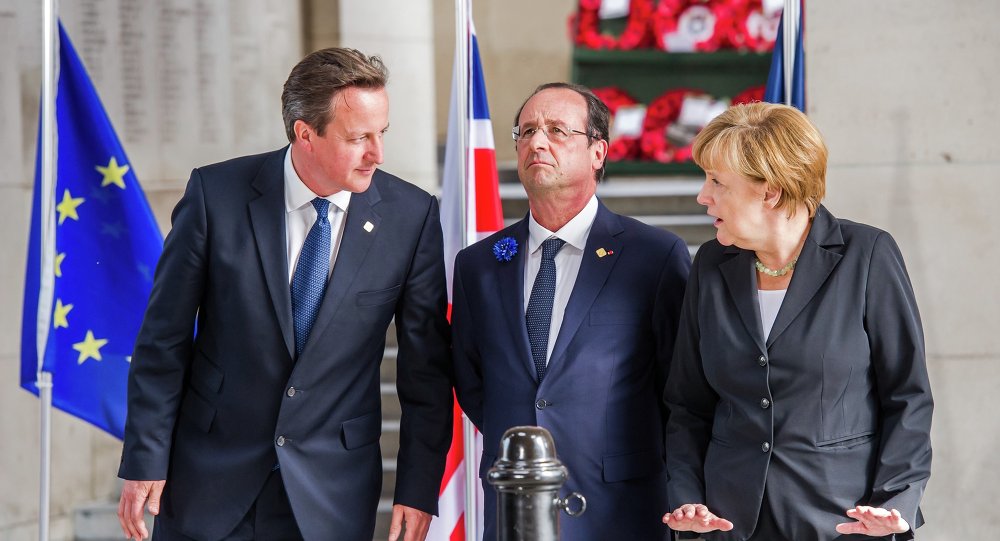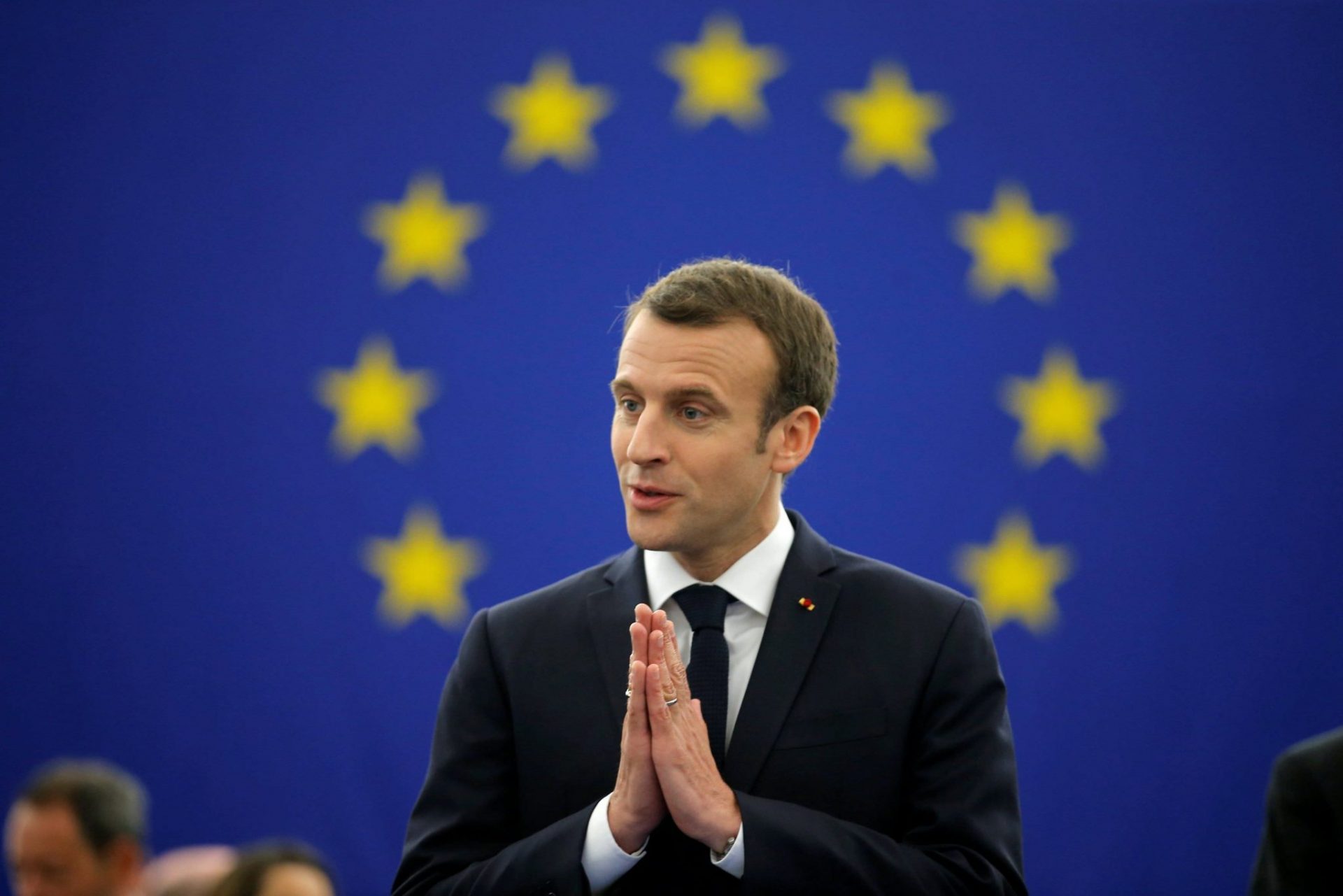
by Sven Biscop
‘The Germans never make a small mistake, because they are cautioned against all small mistakes in their manuals, without reference to which they seldom do anything whatever. But they can always be relied upon to make all the imaginable large and catastrophic mistakes, together with a good many that only a German could think out’. Thus Sir Arthur Harris, better known to posterity as Bomber Harris, the head of RAF Bomber Command, said in his memoir of the Second World War.
I quote this at the risk of upsetting some of my German friends, because it applies exactly to European foreign and security policy.
Think of the Ukraine crisis. The European Commission rolled out the entire machinery of trade negotiations, with all of its intricate procedures and technical details, everything according to the manual, to complete a Deep and Comprehensive Free Trade Agreement (DCFTA) with Ukraine. Not a single small mistake was made. Except for the large and catastrophic mistake to assume that this trade negotiation was taking place in a political and geopolitical vacuum. Flawless tactical execution can never substitute for a flawed, or the absence of, strategy.
Foreign and security policy cannot be made according to a manual; strategists and diplomats are not technicians. This is why the ongoing debate about a new EU Global Strategy for Foreign and Security Policy (EUGS) is so important. A new strategy should renew the political vision for EU foreign and security policy. A new ‘big story’ and clearer priorities will frame the use of the many instruments that are available to the EU.
Strategising requires courage though – the courage to ask the large questions. Only then can large and catastrophic mistakes be avoided. In my new book, Peace without Money, War without Americans – Can European Strategy Cope? I outline what I think are the key questions that the EU and the Member States have to face up to.
First, the EU needs a proactive multilateral agenda. All other global actors are advancing their multilateral schemes, not in the least the US. At the end of the 15th century, the pope divided the ‘new world’ into a Spanish and Portuguese sphere. Today, the US divides the world in a Transatlantic Trade and Investment Partnership and a Trans-Pacific Partnership sphere. Are we sure that this is entirely in Europe’s interest? If not, what is our scheme for global governance?
Second, only when the EU has defined its multilateral agenda can it instrumentalise its bilateral strategic partnerships, especially with the BRICS countries, to that end. Russia and China present a particular challenge. Though we have to cooperate with Russia on Iran and Syria, the dispute over its incursion into Ukraine continues. That has driven Russia to seek closer relations with China, which however under the banner of ‘One Belt, One Road’ (OBOR) is set to move westward and massively expand its economic presence into Central Asia – in Putin’s mind, as much a part of his sphere of influence as Ukraine. And the terminus of OBOR is supposed to be Europe. Can we live up to Henry Kissinger’s dictum in his World Order that we should always be closer to both Russia and China than they are to each other?
Third, how to bring about a stable regional order in our southern neighbourhood? The EU belatedly joined the Vienna Process where negotiations about the future of Syria are inching forward. But the challenge is much larger than Syria alone. We need not choose between Saudi Arabia and Iran, but work with the US and Russia to establish a regional order in which both, and Turkey, find their place. Only then does it really make sense to review the European Neighbourhood Policy and put relations with the southern neighbours on an entirely new footing.
Fourth, Europeans urgently need to decide which security responsibilities they are ready to assume. When activating Article 42.7 of the Treaty on European Union, the so-called mutual assistance clause, at the request of France, it was given a very broad interpretation. Not purely in self-defence, but in response to a counter-attack by Islamic State after the coalition of the willing started bombing it one year ago. Not just to help defend French territory, but to assist it with expeditionary operations, against IS but also in the Sahel. And there are implications for internal security and foreign policy as well. This is just one example to demonstrate that there are many unanswered questions about just how far Europeans’ collective security responsibilities reach.
Can European strategy cope with a new book about it? There is the risk, to quote the great historian Hugh Trevor-Roper, that ‘those who habitually deal in rhetoric sometimes find more matter for it than the subject affords’. But somehow I feel that this subject is far from exhausted.
- This article first appeared on European Geostrategy



